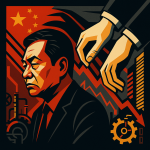Key Points
- The MIIT (Ministry of Industry and Information Technology) in China is piloting 15-digit “privacy numbers” to protect users’ real phone numbers from leaks, spam, and fraud.
- These new numbers, primarily from the ‘700’ series, will have an 11-digit management length and a 15-digit usage length.
- The system involves three key players: Application Platform Providers (apps), Basic Platform Providers (telecom carriers like 中国移动通信集团有限公司 and 中国联合网络通信集团有限公司), and Service Users (enterprises hiring platforms).
- The pilot program has a 2-year test phase after initial preparation and transition phases, aiming to verify the model and its societal impact.
- Strict rules are in place, including a minimum ¥10 million RMB ($1.38 million USD) registered capital for nationwide operators and a ban on using privacy numbers for marketing or registering other internet applications.

China is rolling out 15-digit phone numbers in a massive pilot program designed to tackle one of the biggest problems in the digital age: your personal phone number getting leaked.
Think about it.
Your number is tied to everything from your food delivery and ride-hailing apps to online shopping.
Every time you share it, you’re opening the door to potential data leaks, spam calls, and fraud.
Now, China’s Ministry of Industry and Information Technology (MIIT) is stepping in with a plan for what it calls “number protection services.”
The core idea is simple: instead of giving your real number to a platform, you’ll be assigned a temporary, 15-digit “privacy number” that forwards calls and texts to you.
It’s a huge move to bake privacy directly into the infrastructure of the country’s massive digital economy.
Why China is Doing This Now: The Push for Data Security
This isn’t happening in a vacuum.
The program is a direct response to China’s powerful data privacy and security laws.
It’s about bringing the real-world operations of tech platforms in line with national regulations.
The key drivers here are some of China’s most important pieces of legislation:
- The Personal Information Protection Law of the People’s Republic of China
- The Cybersecurity Law of the People’s Republic of China
- The Anti-Telecom and Online Fraud Law of the People’s Republic of China
The MIIT’s pilot program aims to:
- 🛡️ Strengthen personal information protection for millions of users.
- 🚫 Combat the rampant problem of telecom and online fraud.
- 📵 Reduce unsolicited commercial calls and messages (spam!).
- 🚀 Support the healthy growth of the platform economy by building a more secure foundation.

Find Top Talent on China's Leading Networks
- Post Across China's Job Sites from $299 / role
- Qualified Applicant Bundles
- One Central Candidate Hub
Your First Job Post Use Checkout Code 'Fresh20'

How It Works: The Three Key Players in the New System
This new privacy ecosystem relies on a partnership between three distinct groups.
Understanding their roles is key to seeing how this all fits together.
1. The Application Platform Provider
Think of this as the app on your phone, like a ride-hailing, food delivery, or e-commerce platform.
These companies will:
- Build and manage the user-facing application for the service.
- Generate the temporary “intermediate numbers” for users.
- Manage the critical link between a user’s real number and their temporary privacy number.
- Receive, process, and forward all communications sent to the privacy number.
2. The Basic Platform Provider
Think of this as the core telecom carrier, like China Mobile (Zhongguo Yidong Tongxin Jituan Youxian Gongsi 中国移动通信集团有限公司) or China Unicom (Zhongguo Lianhe Wangluo Tongxin Jituan Youxian Gongsi 中国联合网络通信集团有限公司).
These entities are the heavy lifters responsible for the underlying infrastructure. They will:
- Handle all the signal routing and network interconnection.
- Manage the actual number transformation and information processing.
- Generate call detail records and retain communication data for compliance.
- Provide network access to qualified Application Platform Providers.
3. The Service User
This one can be a little tricky. The “Service User” isn’t the individual end-user (like you or me).
It’s the enterprise or public institution that actually hires the Application Platform Provider to offer these privacy numbers to its individual users.
For example, a local restaurant chain might be the “Service User” that partners with a food delivery “Application Platform” to protect its customers’ phone numbers.

ExpatInvest China
Grow Your RMB in China:
- Invest Your RMB Locally
- Buy & Sell Online in CN¥
- No Lock-In Periods
- English Service & Data
- Start with Only ¥1,000

The Nitty-Gritty: Pilot Program Details
The MIIT has laid out a clear, structured plan for how this will roll out, including who can participate and the specific timeline.
- Preparation Phase: 3 Months – Basic Platform Providers prepare infrastructure.
- Transition Phase: 3 Months – MIIT accepts applications, existing services migrate to 700-series.
- Pilot Phase: 2 Years – Official test period; model verification, societal impact assessment.
The Dedicated “700” Number Series
To make these new privacy numbers instantly recognizable, the MIIT has designated the 700-number series specifically for this service.
These numbers will have:
- An 11-digit management length (for internal system use).
- A 15-digit usage length (what the end-user sees and interacts with).
This clear separation is designed to prevent confusion with existing fixed and mobile numbers.
Who Can Apply? (The Requirements)
Not just anyone can become an Application Platform Provider. The MIIT has set some strict conditions:
- Must be a legally established company.
- Must have the funds and professionals needed to operate.
- A minimum registered capital of ¥10 million RMB ($1.38 million USD) for nationwide operators.
- Must have the technical systems in place to manage numbers, prevent fraud, and block spam.
- The company and its key leaders cannot be on any telecom or fraud-related misconduct blacklists.
The Official Rollout Timeline
The program is structured in three distinct phases:
1. Preparation Phase (3 Months):
Basic Platform Providers (the big telcos) must get their technical infrastructure ready to support the 700-number series.
2. Transition Phase (3 Months):
The MIIT will begin accepting pilot applications. All new number protection services must use the new 700-series numbers. Any existing services using other numbers have to migrate over.
3. Pilot Phase (2 Years):
The official two-year test period begins. This phase is to verify the entire model, assess its societal impact, and confirm its security capabilities. The MIIT will closely monitor all participants and can suspend or revoke pilot status for non-compliance.

Resume Captain
Your AI Career Toolkit:
- AI Resume Optimization
- Custom Cover Letters
- LinkedIn Profile Boost
- Interview Question Prep
- Salary Negotiation Agent

The Rules of the Road: What Everyone MUST Do
With great power comes great responsibility. The MIIT has laid out strict rules for all participants.
For Application Platform Providers:
- No Marketing: Privacy numbers cannot be used to make commercial marketing calls or send marketing texts.
- No Mixing: Number resources cannot be mixed between different service users. Each must have its own distinct and identifiable numbers.
- Direct Contracts Only: They must sign direct contracts with Service Users and cannot provide numbers to any third party without a contract.
- No Reselling: It is strictly prohibited to illegally buy, sell, lease, or lend number resources.
- Anti-Fraud Responsibility: They are legally responsible for preventing telecom fraud on their platform and must have technical systems to monitor and block it.
For Basic Platform Providers (Telcos):
- Ensure Smooth Communication: They must correctly configure network routing for the 700-series numbers.
- Enable Services: They need to enable voice, text, and other necessary services for these numbers.
- Retain Data: They must retain relevant usage data for at least two years for traceability.
- Vet Partners: Before signing a contract, they must carefully review an Application Platform Provider’s business license, security plans, and technical solutions.
For Service Users (The Businesses):
- Use Numbers as Intended: They can only use the privacy numbers for their individual users within the agreed-upon application scenario.
- No Reselling: The ban on illegally buying, selling, or leasing numbers applies to them, too.
- Get User Consent: They must fully inform users about the service and get their consent before providing it.
- No Shady Business: They must prevent the numbers from being used for fraud or spam. And critically, these temporary numbers cannot be used to register or bind to other internet applications.

The Big Picture: What This Means for Tech, Investors, and You
This is more than just a new type of phone number. It’s a fundamental shift in how personal data is handled in China’s digital ecosystem.
- For Investors: This pilot creates a new, highly regulated, and potentially massive market for value-added telecommunication services. Companies that can effectively and securely provide these “privacy-as-a-service” solutions are ones to watch.
- For Founders & Tech Companies: If your app operates in China and requires user phone numbers, this is a new layer of compliance and technical integration you need to plan for. It’s a hurdle, but also a way to build user trust.
- For a Regular User: This is a huge win. It means your real number stays safe, reducing the risk of being targeted by spammers, scammers, and data thieves every time you order a car or a meal.
As the pilot phase unfolds over the next two years, the MIIT will gather data to refine the policies before a potential formal, nationwide launch.
This ambitious initiative to pilot 15-digit phone numbers for privacy is a landmark experiment in state-led data protection and one that the rest of the world will be watching closely.





